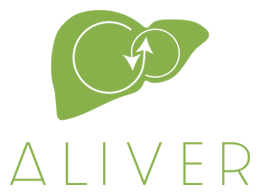DIGESTIVE WELLNESS 170,000 people in Europe die from liver failure every year. The cirrhosis death toll could be cut from 2020, thanks to advanced dialysis technology being trialled in the UK and Europe now.
Many people with liver disease do not see it coming until it’s too late.
Millions of people around the world are unaware they have liver disease, which may be nonalcoholic steatohepatitis (NASH), nonalcoholic fatty liver disease (NAFLD) or even cirrhosis.
“In the UK, 0.5% of the population have cirrhosis, the scarring of the liver that is the end-stage of liver disease, but 75% of them do not know,” says Rajiv Jalan, Professor of Hepatology at the Institute for Liver and Digestive Health, Division of Medicine, at University College London and Honorary Consultant at the Royal Free Hospital.
Many people find they have cirrhosis when they enter hospital for something else
“Every year in the UK, 50,000 to 100,000 people go to hospital because of accidents, infections, over-drinking, or for surgery, and discover that that they have cirrhosis,” says Jalan. “About 20-30% of them develop acute-on-chronic liver failure (ACLF) and multi-organ failure, which may affect the brain, the heart or the immune system. This carries a 30% risk of death within four weeks.
“You can go from walking around with no idea that you are at risk to your deathbed in just four weeks.”
At present, treatment centres on supportive care for the failing organs – including dialysis. The only potential cure is a liver transplant – and there is currently a shortage of donated livers. Every year 170,000 people in Europe die from liver failure.
New dialysis machine uses liver’s regeneration properties
However, the liver can regenerate itself – and a new dialysis technology, now being trialled, takes advantage of that.
Jalan says: “If we can get over the two- to four-week period when the patient is at high risk of death, and prevent more damage to the liver, it will start to repair itself.”
Jalan is the project coordinator of the ALIVER project, which is trialling a new dialysis machine, called DIALIVE. An advance on existing dialysis technology, it uses two specialised filters to remove blood-borne products of liver failure such as products of cell death, toxins from bacteria and metabolic toxins, which traditional dialysis machines do not.
It also replaces the albumin that is depleted or destroyed when the liver fails.
Jalan says: “This could keep the patient alive long enough for the liver to regrow or for a transplant donor to be found.”
The DIALIVE technology was invented at UCL and is being developed by spin-off company Yaqrit. The €7.8 million ALIVER project, funded by the EU Horizon 2020 research programme, runs until 2020.
Current trials for liver disease will see results next year
DIALIVE is being trialled in several hospitals across Europe, and its benefits are being compared to the standard of care. “Initial results are due in 2019 and if they are positive, a larger study will go ahead later in the year,” says Daniel Green, CEO of Yaqrit. “This technology has the potential to save the lives of liver patients who are at a high risk of short-term mortality.”
Meanwhile, Jalan points out that risk factors for liver diseases include obesity, over-drinking and liver diseases such as viral hepatitis, and says: “Ask your GP for a liver function check.”
http://www.healthawareness.co.uk/digestive-wellness/new-liver-failure-treatment-could-be-here-by-2020





